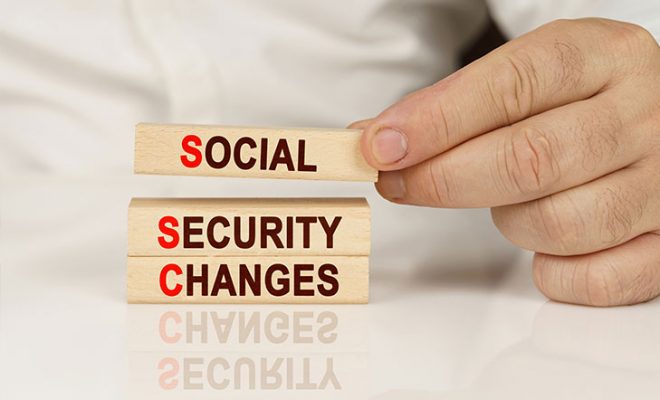5 Important Points on Child-in-Care Spousal Social Security Benefits

If you are involved in any legacy or estate planning, there is one thing you should not overlook – child-in-care spousal benefits under Social Security. These benefits can provide financial support for your spouse and child if something happens to you. Unfortunately, many people are unaware of these benefits, let alone how to qualify for or claim them.
That is a problem!
Many families miss out simply because no one has ever told them they can apply. And while Social Security laws can change over time, the basic concept behind this benefit remains relatively straightforward. Child-in-care benefits are there to help your surviving spouse take care of a dependent child if you pass away or become disabled. So, talk to your family. Make sure they understand what these benefits are, who qualifies, and what to expect.
Let’s break it down and look at five key things you really need to know about Social Security child-in-care benefits.
5 things to know about child-in-care spousal Social Security Benefits
1. What are child-in-care Social Security Spousal Benefits?
Child-in-care spousal benefits are a special kind of Social Security support available to you if your spouse qualifies for retirement or disability benefits. These benefits are primarily for the child, so the spouse must be caring for a child under 16, or a child of any age who has a disability.
This benefit can help surviving spouses, minor children, and children with special needs. Therefore, if you or your spouse qualify for these benefits, ensure that you discuss them and account for them in your financial planning.
2. Eligibility for child-in-care spousal benefits
If you are raising a child and your spouse qualifies for Social Security retirement or disability benefits, you might be eligible for child-in-care spousal benefits. But it is important to understand how they apply to you. Here are some criteria you need to meet to qualify for these benefits:
- To start with, the child you are caring for must be either your biological child, adopted child, or a stepchild who depends on you financially.
- There is also an age rule. The child must be under 16. If the child has a disability, though, they can be any age, as long as their condition qualifies under Social Security’s definition of disability and they require your ongoing care.
Now, things can get more nuanced and confusing when it comes to child-in-care, as there are two categories under which you can claim them. The first is known as spousal benefits, and the other is survivor benefits.
Let’s talk about spousal benefits first.
Typically, you must be at least 62 years old to begin claiming spousal benefits from Social Security. But if you are taking care of a qualifying child, you can start receiving benefits even if you are younger than 62.
However, just keep in mind that you will only receive up to 50% of the amount your spouse would get at their Full Retirement Age (FRA).
Unlike expected Social Security benefits that increase if you delay claiming them, the percentage for spousal benefits does not go up if you wait longer. The cap here is fixed at 50%, irrespective of any delays.
You may wonder if the process is different if you are divorced from the child’s other parent. Well, you still need to be at least 62 to claim child-in-care spousal benefits based on your ex-spouse’s Social Security, and the same 50% limit applies. But yes, this is still available even after divorce, as long as your marriage lasted at least 10 years and you meet all the other criteria.
Now let’s move on to the survivor benefits side.
Survivor benefits apply if your spouse or ex-spouse has passed away. In this case, you can usually receive 100% of their benefit if you wait until your FRA. But there is one key detail to keep in mind. If you are caring for the deceased person’s child who meets the criteria, you can start receiving survivor benefits at any age.
Even if you are in your 30s or 40s!
However, there is a cap again. If you are under 60, you will only receive up to 75% of your late spouse’s full benefit amount.
Of course, as with most Social Security benefits, the actual amount you receive can be affected by family benefit limits and other factors. Therefore, consult a financial advisor to understand what this means for you.
3. How are child-in-care benefits calculated?
Normally, if you are claiming Social Security as a spouse, you are eligible to receive up to 50% of your spouse’s benefit at their FRA. This is also known as the Primary Insurance Amount (PIA). But if you claim before your own FRA, such as at 62 instead of 67, your benefit is permanently reduced. That’s how it usually works.
However, with child-in-care spousal benefits, the rules are different. If you are caring for a child who is under the age of 16, or a child of any age with a qualifying disability, you do not have to wait until you are 62. You still get the full 50% of your spouse’s PIA at any age. There are no early filing penalties and no reductions, as long as your spouse has filed for their Social Security benefit and you are caring for the eligible child.
That said, even though you are entitled to half of your spouse’s benefit, you also have to stay within the family’s maximum benefit limit. This is a cap on the amount of Social Security that will be paid out to a family unit based on one worker’s earnings record.
Suppose, if there are multiple people claiming benefits off your spouse’s record, such as you and your child or children, Social Security will calculate the maximum total benefit the family can receive and split it up accordingly.
So, while you could receive up to 50% of your spouse’s benefit, depending on the number of dependents and the family maximum, your portion might be a bit less.
4. How to apply for child-in-care spousal benefits?
You can apply in two main ways:
- Reach out to the Social Security Administration by calling 1-800-772-1213
- Or visit your local Social Security office near you
Now, Social Security will ask for quite a bit of paperwork to process your claim. Here’s what they might ask you to provide:
Documents related to the child:
- The child’s birth certificate or adoption paperwork
- If the child is your stepchild, proof that you married the child’s biological or adoptive parent
- Proof of the child’s U.S. citizenship or lawful immigration status if they were not born in the U.S.
- Any W-2s or tax returns if the child earned income last year
- If the worker (your spouse) is deceased, you will need to show proof of death
- Military discharge papers (if applicable)
Documents related to you:
- Your full name and Social Security number
- Your birth certificate or similar proof of birth
- Your marriage certificate to show you are married to the worker
- Proof of your citizenship or lawful immigration status if you were born outside the U.S.
Other details you may need to give:
- The worker’s name and Social Security number
- Whether you are the natural or adoptive parent of the child
- Whether the child lives with you. If not, they will need the name, address, and details of the person the child lives with
- The child’s citizenship status
5. What happens to the benefits when your child turns 16?
The benefits stop once the child reaches their 16th birthday, even if you are still caring for them. What happens next depends on your own age.
If you are under 62, your spousal benefits stop completely at that point. You are no longer eligible for child-in-care benefits, and since you are not yet old enough to claim regular spousal benefits based on your age.
If you are 62 or older, then you have another option. You can restart your standard spousal benefits by filing Form SSA-25. But if you do not fill out the form, the Social Security Administration will assume you are waiting until your FRA to claim the benefits. Once you reach your FRA, your spousal benefits will automatically kick in. And, you will receive the full spousal benefit amount, which is typically up to 50% of your spouse’s PIA.
So, what do you need to do?
If you are currently eligible or think you might be in the future, speak with a Social Security representative or consult a financial advisor to get clarity on your options. You can apply for the child-in-care benefit under Social Security by submitting the documents listed above.
If you are unsure about eligibility, benefit calculations, or need help with the paperwork, you can use our free advisor match tool and hire a financial advisor who understands the Social Security system and can guide you through the process of filing for child-in-care benefits.










